The installation of EV charging stations requires compliance with legal procedures, detailed construction processes, and adherence to technical specifications. Clear understanding of new trends and risks is vital for effective implementation.
Legal Procedures for EV Charging Stations
Building an EV charging station necessitates a construction permit, which includes detailed technical drawings and land-use certificates. The station’s electrical system must be safe and meet fire safety standards. Registering with the power authority is necessary to ensure a stable power supply and compliance with technical standards including capacity and protection systems.
Legal procedures form the backbone of any investment in EV charging stations, ensuring operations adhere to lawful and safety guidelines.
1. Business and Construction Licenses
Firstly, businesses must obtain a license to operate in the electric charging field to ensure market activity rights. For large-scale stations, a construction license is vital, especially when installing major equipment like Eaton or Schneider units. Certain cases allow waiver of construction licenses under amended Construction Law if designs are straightforward.
2. Electrical Safety and Fire Safety
Charging stations must have electrical safety certifications to mitigate incident risks, ensuring equipment like Mitsubishi functions reliably. Even where detailed fire safety design review isn’t mandatory, compliance with these standards is crucial.
3. Power Supply Agreements and Environmental Protection
Through power supply contracts with electricity authorities, businesses secure a stable electricity source. Registering environmental protection is also a key step to comply with current regulations.
4. Land Use Certificates
Land use rights must be verified through legal documentation, crucial for determining a suitable location for the charging station.
5. Environmental and Social Impact Assessments
Environmental and social impact assessments may be required based on the station’s scale and location to ensure no negative impact on surrounding communities.
Compliance with legal procedures not only ensures legitimacy but lays the groundwork for sustainable development of EV charging stations.
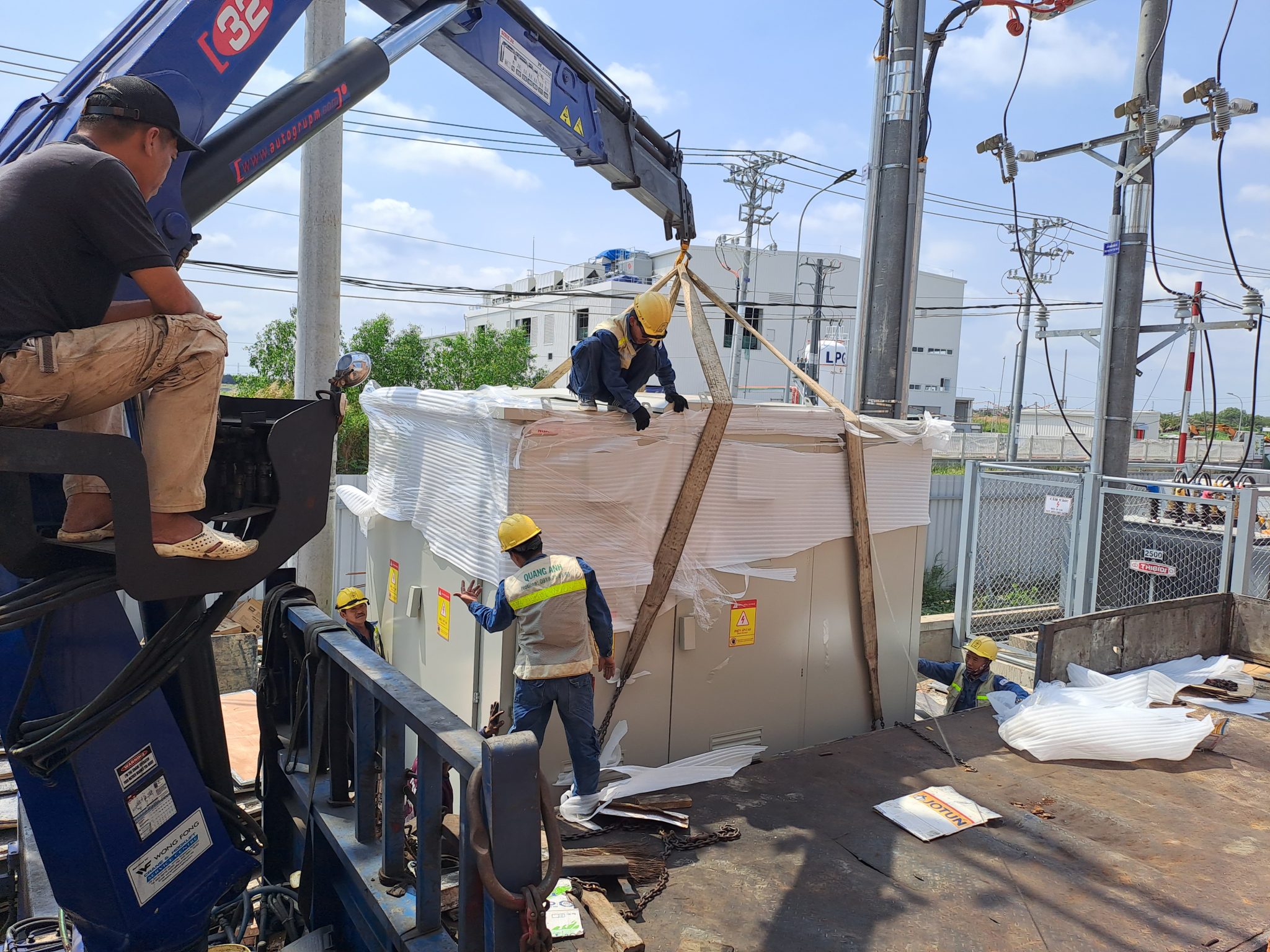
Construction Process of EV Charging Stations
Surveying requirements to determine capacity, installation site, and grid connection viability is the first step in constructing an EV charging station. Designing the system with technical drawings and selecting internationally compliant equipment is necessary. Installation demands secure electrical connections and testing to ensure smooth operation.
Implementing an EV charging station requires meticulous attention from evaluation to installation to ensure optimal performance and safety. The process begins by identifying requirements and technical specifications to understand the type of electric vehicle and energy needs. Detailed analysis aids in making precise decisions about capacity and appropriate station type.
The following step involves thorough site and electrical infrastructure assessments. Site surveys not only guarantee easy accessibility but also optimize space usage. Additionally, checking the existing electrical system’s capacity and structure ensures robustness to support the charging station, preventing unwanted overload incidents.
Upon completing evaluations, system design of the charging station proceeds. Selecting EV charging equipment such as AC or DC sockets must align with needs and international standards. Proper system planning not only ensures safe operation but also optimizes energy efficiency.
During project preparation, a solid foundation and electrical infrastructure are essential. Building a sustainable foundation and electrical system with stable energy supply capacity ensures the EV charging station’s long-term efficiency.
Installation and testing phases must be conducted with precaution. Installing devices like transformers and controllers requires thorough completion, followed by comprehensive system checks to ensure smooth operation and compliance with all safety standards.
Safety is the foremost concern in the design and operation of charging stations. To guarantee charging station safety, systems must be equipped with emergency power cut-off switches for quick response to emergencies. The station should also be durable against weather and environmental impacts. By focusing on each step in the construction process, from demand assessment to system design and installation, it’s possible to create a safe, efficient, and sustainable EV charging station system.
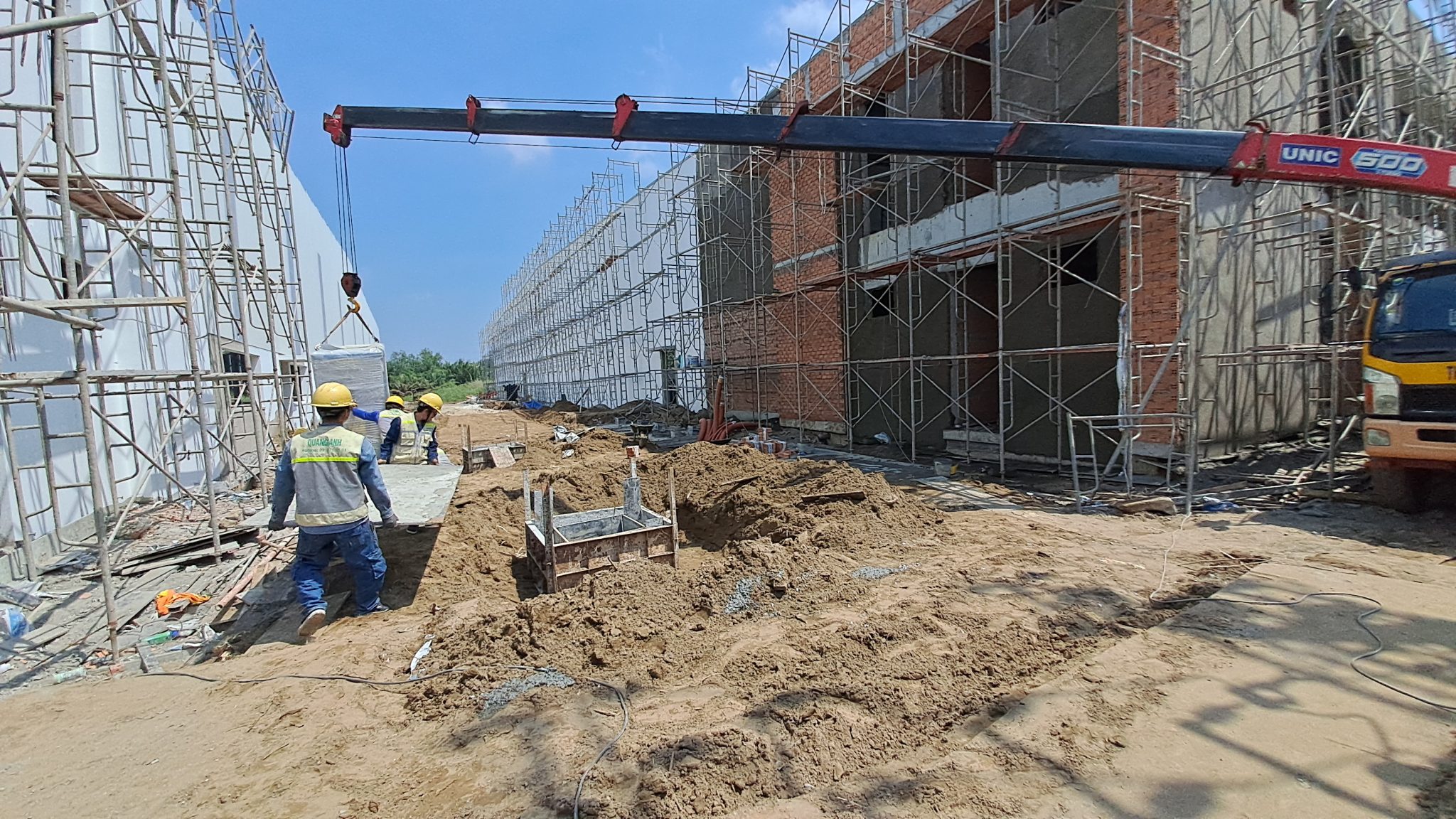
Technical Requirements for EV Charging Stations
Inside EV charging station constructions, a minimum power range from 7kW for slow charging to 22-350kW for fast charging must be ensured. The system should support Type 1 and Type 2 connection standards and include overcurrent protection, with insulation achieving at least IP54 standards.
The development and current demands of electric mobility require strict compliance with technical regulations for charging stations. EV charging stations must adhere to TCVN 13078-1:2020 (IEC 61851-1:2017) for overall structure for in-cable charging systems. Electromagnetic compatibility (EMC) requirements are essential to ensure the station operates stably without causing electromagnetic interference to nearby devices, as outlined in TCVN 13078-21-2:2020 (IEC).
Additionally, charging stations must be compatible with the necessary voltage and capacity for present electric vehicles, including both alternating current (AC) and direct current (DC) charging. The charging capacity should be carefully calculated to optimize charging time and ensure user safety.
The essential safety features like overload, temperature protections, lightning arrester, and leakage detection must be fully equipped to ensure users and vehicles are protected from dangerous scenarios.
Stations must comply with international standards like IEC 61851-1 for high charging efficiency and minimized risk. Furthermore, enclosures should meet protection level standards such as IP54 to ensure internal components are shielded from water and dust.
Finally, as per national technical regulations, the EV charging station’s HS code is governed as 85044090, aiding effective management and facilitation of importing and installing these electronics.
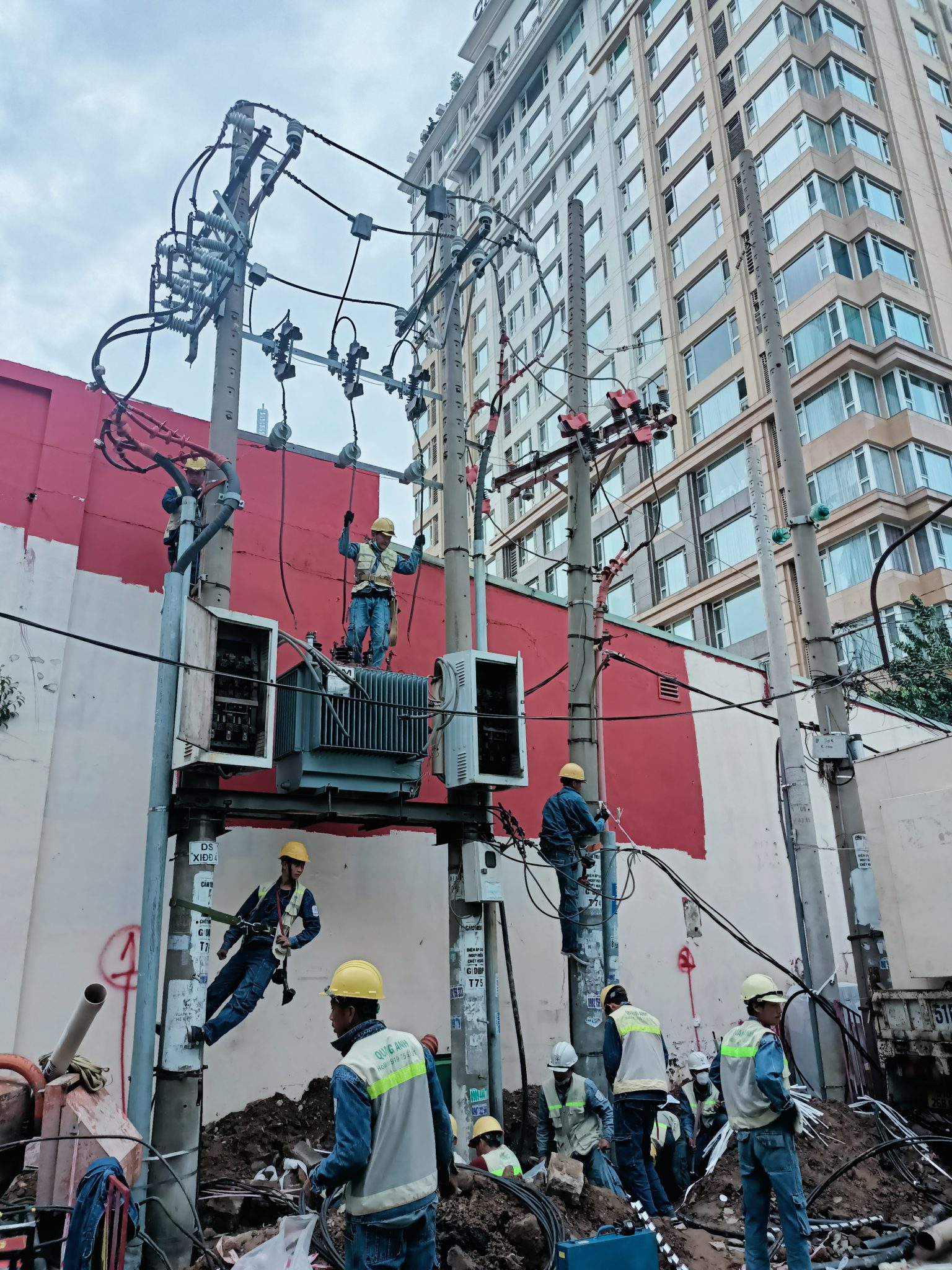
Emerging Trends in the EV Charging Station Sector
Some charging station providers utilize a no-capital investment model, integrating renewable energy to alleviate grid load and improve sustainability. These trends signify new dynamics in designing and running EV charging stations.
Breakthrough Charging Technology Development
Amid sustainable development, LINK technology emerges as a breakthrough solution within the EV charging infrastructure. This technology enables flexible linkage of multiple chargers into a smart system, boosting capacity up to 180kW when combining three 60kW chargers or 360kW with a 120kW unit. This significantly benefits reducing charging times for large EVs like trucks and buses, ensuring optimal energy distribution according to each vehicle’s needs and enhancing electrical efficiency.
Infrastructure Development Expansion
Vietnam is witnessing rapid expansion in charging infrastructure. Nationwide, the government promotes green transport infrastructure planning with specified policies formalized in legal documents. Moreover, public-private collaborations are encouraged, with the trend of installing 2,000 to 5,000 new charging stations nationwide being pushed.
Focusing on Commercial Electric Vehicles
Targeting the development of green transport systems, specifically for commercial electric vehicles, high-capacity charging stations are deployed to support electric trucks and buses. The advent of LINK technology, offering fast charging up to 360kW, greatly reduces waiting times for these vehicles.
Government Support Policies
To stimulate infrastructure investment, the government has established supportive frameworks, including tax incentives and technical aid for public charging station projects. This enables businesses to easily access and implement EV charging station-related projects.
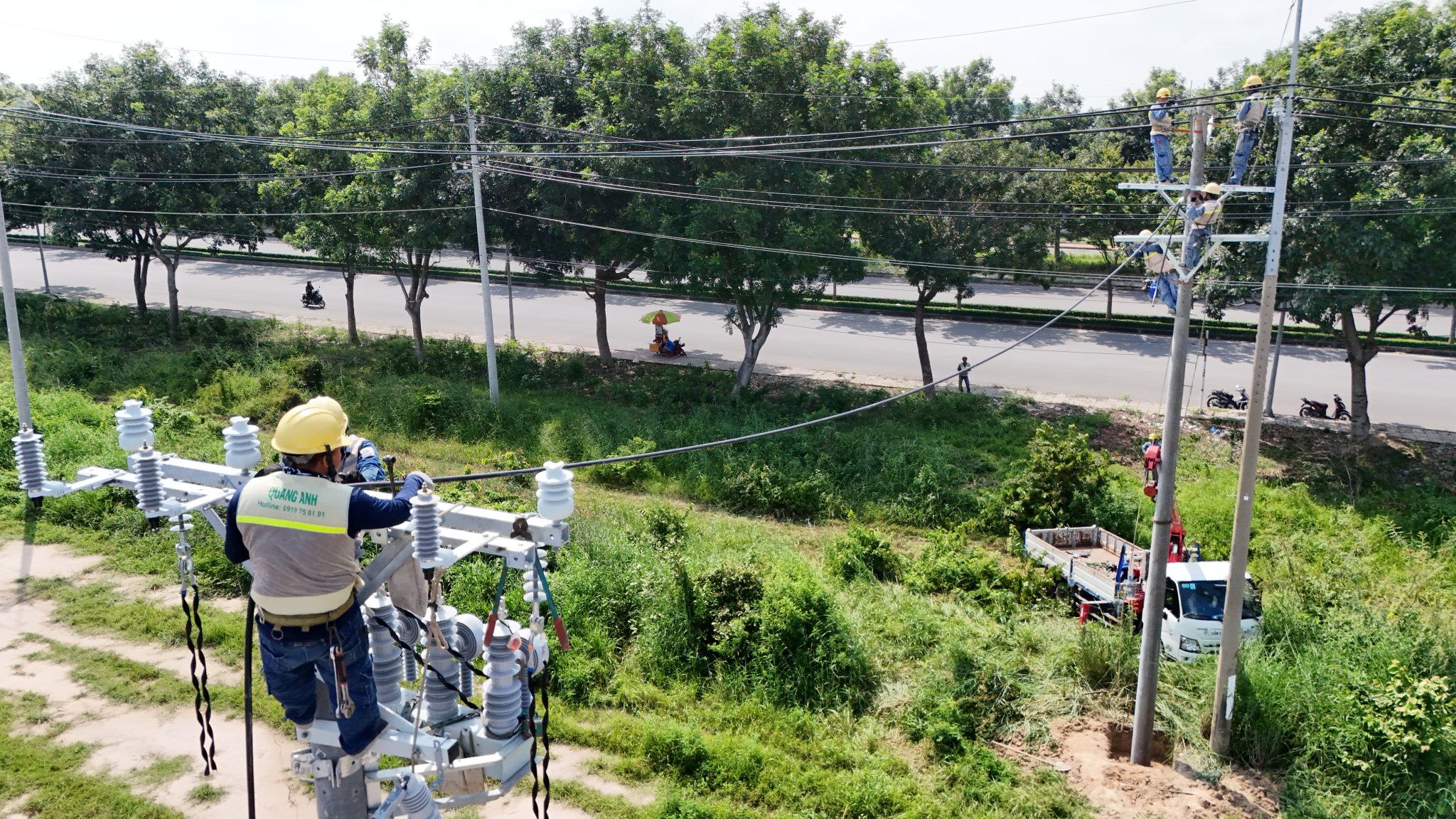
Operational Risks for EV Charging Stations
Managing EV charging stations involves risks like electrical overload, connection errors, and non-compliance with regulations, demanding routine maintenance and adherence to technical standards to ensure safety and performance.
Management and operation of EV charging stations not only require continuous energy supply assurance but also face multiple potential threats. Firstly, electrical safety and fire hazards pose leading threats when using non-standard chargers or equipment. Voltage discrepancies can lead to short circuits or overheating, especially with lithium-ion batteries. Lacking automatic circuit interrupter systems or mismanagement of overheated batteries heightens fire risks.
Legal and standard compliance is essential for legitimate station operation, ensuring installation in approved areas with certified safety clearances. This prevents legal violations and protects the station’s structural integrity.
Economic efficiency is also critical in station management. Lack of maintenance causes significant energy losses and increased operating costs. Moreover, poorly addressed technical issues may disrupt services, impacting reputation and escalating repair expenses.
User behavior risks are unavoidable when instructions are ignored, like overcharging or improper battery care, leading to possible damage or even battery fires.
The solution lies in employing advanced technical standards such as IEC 61851 in station design, integrating automatic temperature monitoring and smoke detection sensors. Additionally, staff training in technical operations and regular maintenance for cables and connectors is essential. Utilizing battery systems with BMS (Battery Management System) can better monitor and prevent overcharging.
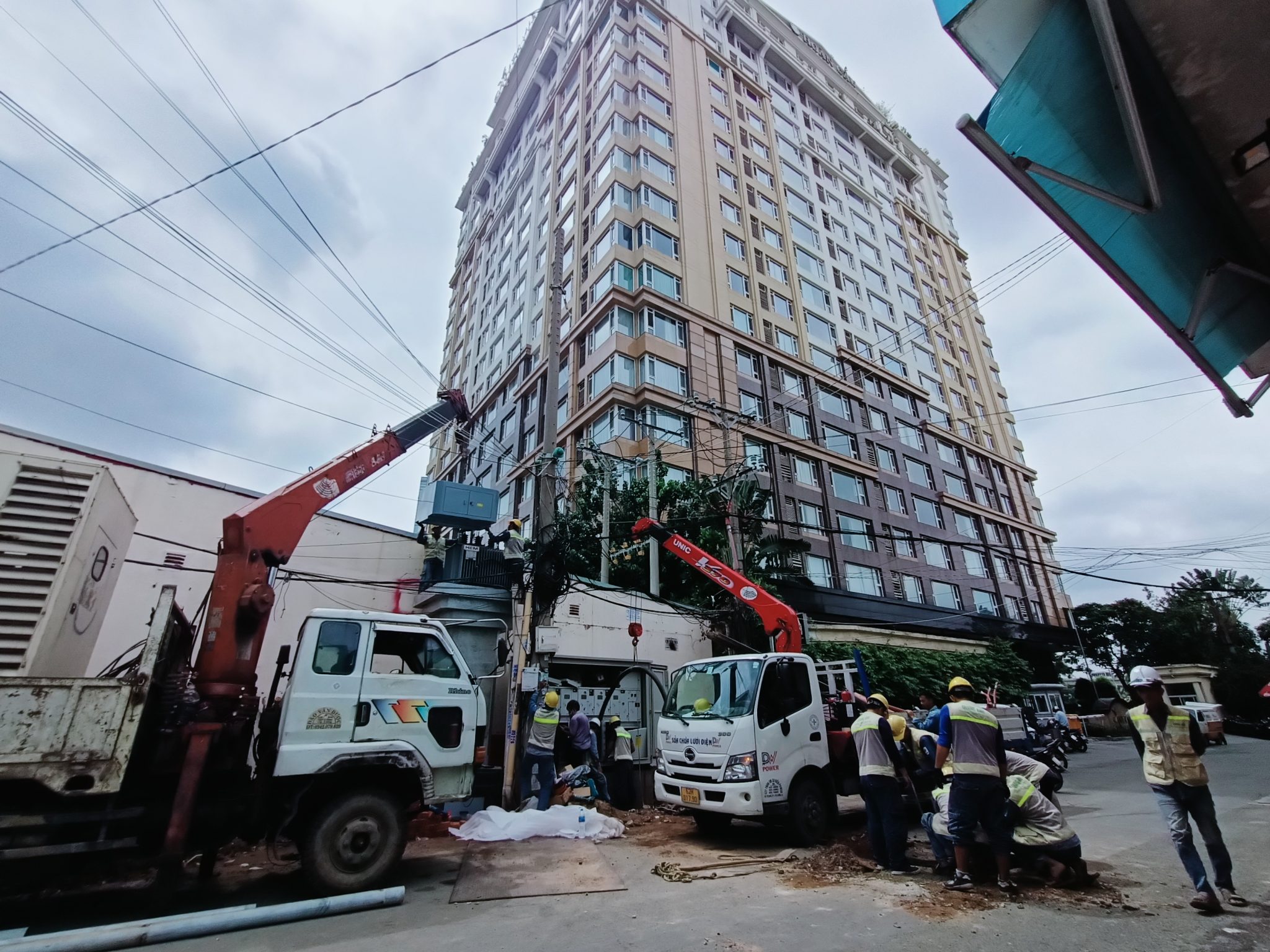
Building EV charging stations offers benefits from technical, investment, and sustainable strategy perspectives. Merging green technology with revenue-sharing capabilities maximizes traffic infrastructure exploitation and development.
Contact QuangAnhcons via Hotline: +84 9 1975 8191 for professional consultation on EV charging station construction and installation services.
QuangAnhcons offers comprehensive EV charging station construction services, from surveying to design and installation, ensuring adherence to current technical and legal standards.
[contact-form-7 id="7239967" title="Contact form 1"]

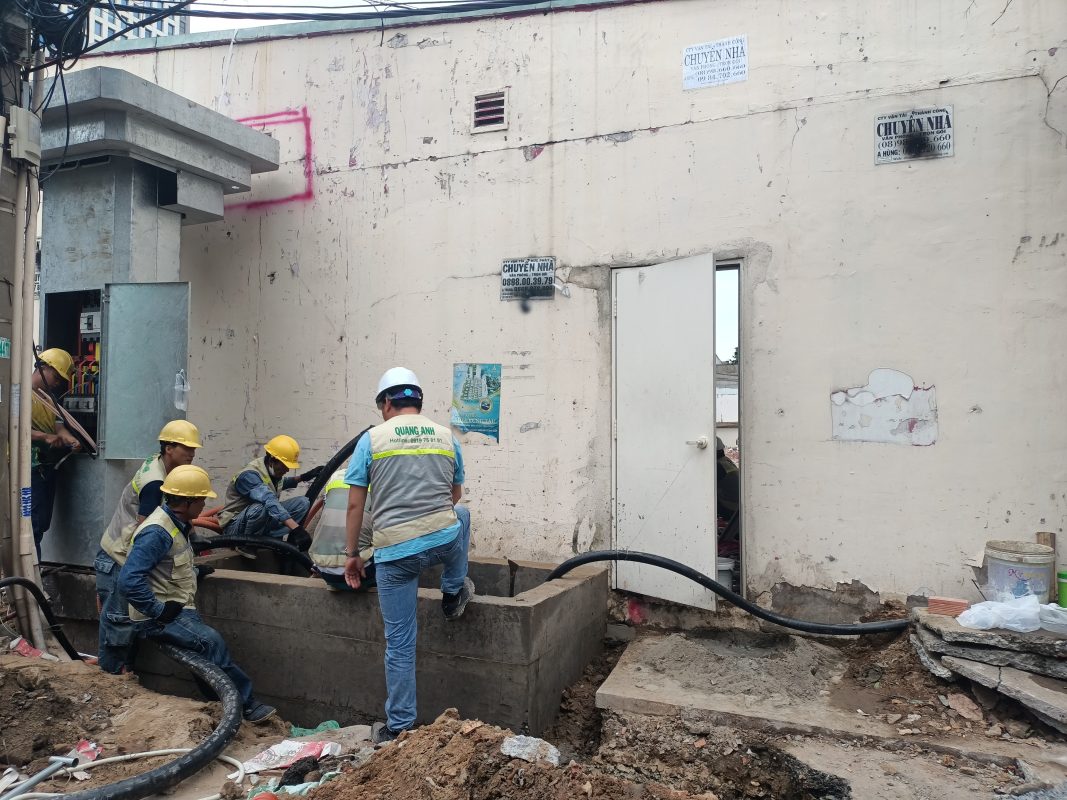
Related Posts
Tay Ninh Solar Power Planning: Technical Framework, Grid Interconnection, and Rollout Roadmap
Technical overview of solar planning in Tay Ninh: irradiation, grid capacity, permitting, design, operations, and [...]
Dec
Binh Duong Solar Planning: Regulatory Framework, Grid Interconnection, and an Implementation Roadmap for Factories and Industrial Parks
An overview of Binh Duong solar planning: legal framework, interconnection, design, risk management, and an [...]
Dec
Solar Farm Repair: O&M Workflow, IV Curve Diagnostics, Thermography, Inverter Service and Utility-Scale Safety
A utility-scale solar farm repair plan centered on O&M, IV curves, thermal imaging, inverter service, [...]
Dec
Dong Nai Solar Power Plan 2023–2025: Tri An 1,029 MW, Grid Upgrades and the DPPA Pathway
A complete look at Dong Nai’s solar power plan: Tri An 1,029 MW, irradiation potential, [...]
Nov
Quang Ngai Solar Power Plan 2024–2030: Legal Framework, Irradiance Potential, and Development Roadmap
A complete look at Quang Ngai’s solar power plan: capacity targets, irradiance (PVout), development zones, [...]
Nov
Solar Damage Assessment Services: On-Site Procedures, EL/IV/Thermography Testing & Compliance with Standards
Discover IEC/UL/NEC standard solar damage assessment processes: on-site evaluation, EL and IV curve testing, thermal [...]
Nov
Comprehensive Package Estimate for a 1800MVA 500kV Substation: Scope, Configuration 3x600MVA, Standards and Timeline Management
An overview of the 1800MVA 500kV substation estimate: construction scope, configuration 3x600MVA, GIS/AIS, SCADA, standards, [...]
Nov
Factory Electrical Systems: Comprehensive Design and Implementation Guide
Discover the detailed and safe process of factory electrical systems design and implementation. [...]
Oct
Blueprints Required for Factory Construction Permits
Discover the necessary blueprints in factory construction permit applications, from floor plans to electrical and [...]
Oct
What Are the Requirements for a Factory Construction Permit? A Comprehensive Guide
Explore the documentation and steps needed to secure a factory construction permit for streamlined project [...]
Oct
Factory Construction Permit Procedures in Vietnam: Essential Guidelines and Documents
Learn the procedures for securing a factory construction permit in Vietnam, focusing on document preparation [...]
Oct
Key Steps in the Factory Construction Process
Discover the essential steps and requirements for building factories. [...]
Oct
Comprehensive Electrical Substation Solutions by Quanganhcons
Discover the cutting-edge electrical substation solutions offered by Quanganhcons for industrial applications. [...]
Oct
Investment Costs for a 1MWp Solar Power System and Influencing Factors
Explore the investment costs for a 1MWp solar power system in Vietnam and the influencing [...]
Sep
QuangAnhcons: Elevating Wind Energy Solutions
Explore QuangAnhcons' leadership in wind energy and renewable solutions in Vietnam. [...]
Sep
Electrical Contractor Strategies at Becamex Industrial Park
Discover the strategic advancements and partnerships of the electrical contractor at Becamex Industrial Park. [...]
Sep
Investment Insights for 1MW Wind Energy in Vietnam: Costs and Opportunities
Discover the detailed analysis of costs and opportunities for investing in 1MW wind energy projects [...]
Sep
Advanced Electrical Installation Solutions by QuangAnhcons
Explore advanced electrical installation solutions and modern technology with QuangAnhcons. [...]
Sep
Enhancing Industrial Electrical Services with Quanganhcons
Discover Quanganhcons' expertise in industrial electrical services, offering efficient and sustainable power systems. [...]
Sep
Comprehensive MEP Solutions by QuangAnhcons: From Design to Maintenance Excellence
Discover optimal MEP solutions with QuangAnhcons, dedicated to excellence from design through maintenance. [...]
Sep